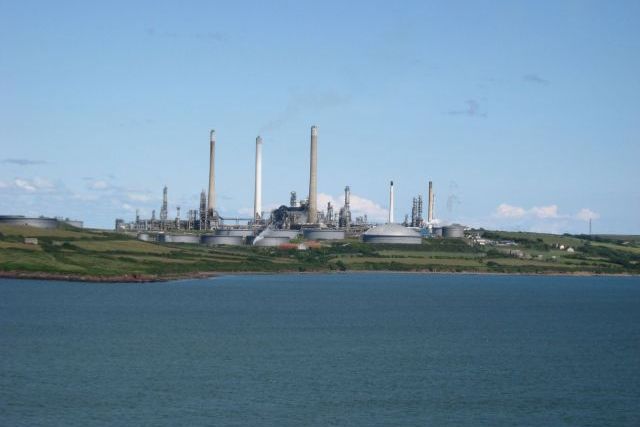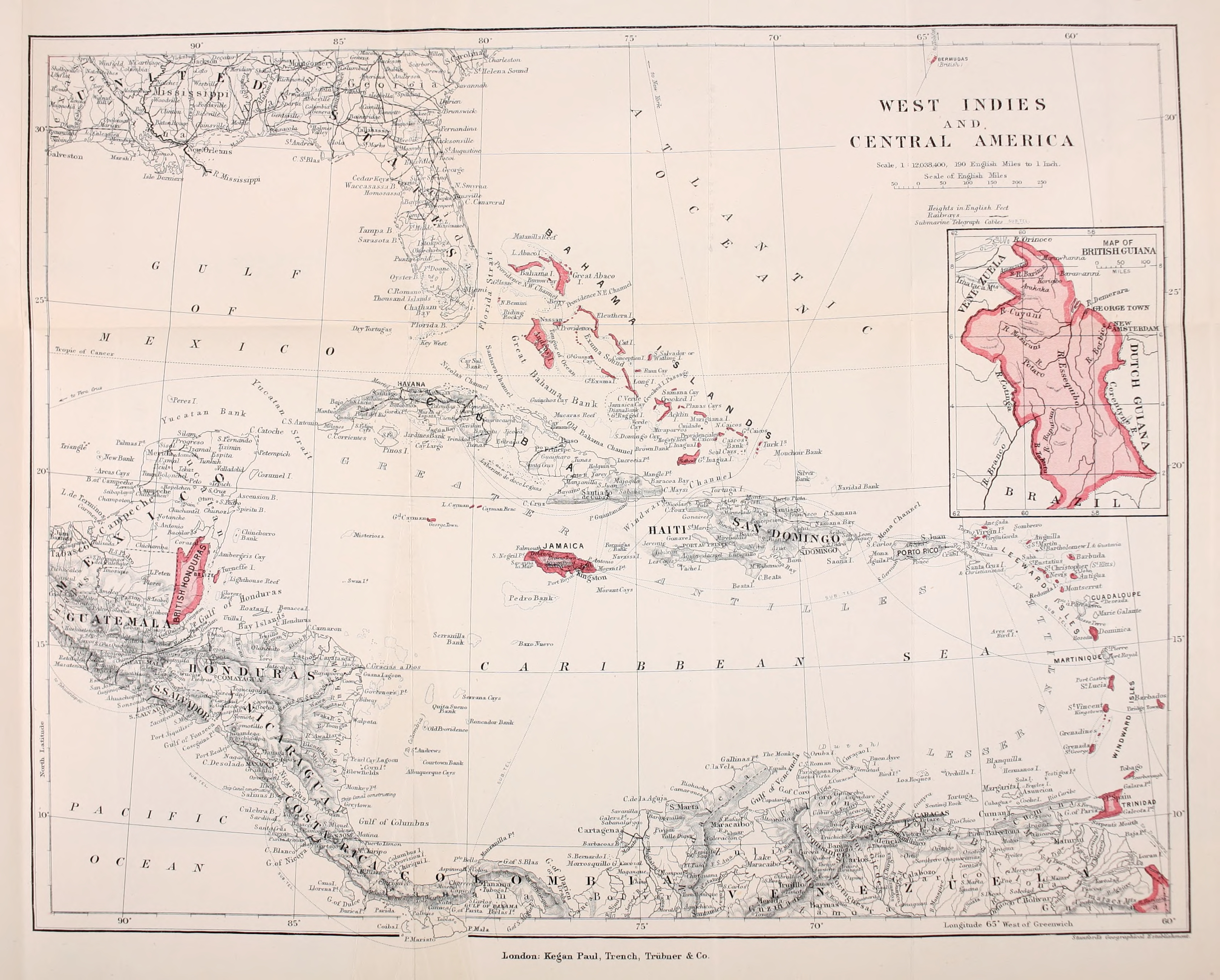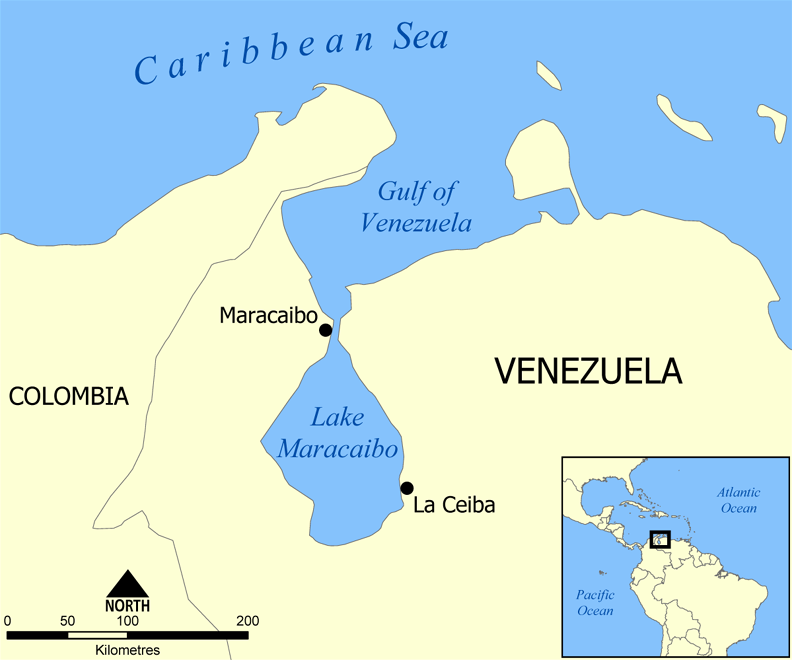|
Lago Oil And Transport Company
Lago Oil & Transport Co. Ltd. had its beginning in 1924 as a shipping company carrying crude oil from Lake Maracaibo to its transshipment facility on the island of Aruba. History With the discovery of a vast amount of crude oil under Lake Maracaibo, but unable to send it to market because the channel into Lake Maracaibo was too shallow to allow oceangoing oil tankers to enter the lake, Pan American Petroleum and Transport Company, who held the lease on a large area of Lake Maracaibo, incorporated Lago Oil & Transshipment Co. The purpose of that company was to run lake tankers, to bring crude oil from Lake Maracaibo to Aruba. There, the oil was stored ashore in large tanks, later loaded onto larger oceangoing tankers and taken to the United States for refining into finished petroleum products such as gasoline, diesel fuel, Bunker C and heating oil. Refinery In 1928, Standard Oil of Indiana purchased the Lago transshipment Pan American Petroleum facility in Aruba, as ... [...More Info...] [...Related Items...] OR: [Wikipedia] [Google] [Baidu] |
WWII
World War II or the Second World War, often abbreviated as WWII or WW2, was a world war that lasted from 1939 to 1945. It involved the vast majority of the world's countries—including all of the great powers—forming two opposing military alliances: the Allies and the Axis powers. World War II was a total war that directly involved more than 100 million personnel from more than 30 countries. The major participants in the war threw their entire economic, industrial, and scientific capabilities behind the war effort, blurring the distinction between civilian and military resources. Aircraft played a major role in the conflict, enabling the strategic bombing of population centres and deploying the only two nuclear weapons ever used in war. World War II was by far the deadliest conflict in human history; it resulted in 70 to 85 million fatalities, mostly among civilians. Tens of millions died due to genocides (including the Holocaust), starvation, mass ... [...More Info...] [...Related Items...] OR: [Wikipedia] [Google] [Baidu] |
Lake Tanker
Lake tankers were small (up to 5,000 ton) specially designed shallow-Draft (hull), draft Tanker (ship), tanker ships that carried the Petroleum, crude oil, pumped from beneath Lake Maracaibo in Venezuela, to the three off-shore Oil refinery, refineries located on the Dutch islands of Aruba and Curaçao. Background The crude obtained from Lake Maracaibo was processed at refineries located at Aruba and Curaçao, Netherlands West Indies. Aruba had two refineries, Lago Oil and Transport Company, owned by Standard Oil of New Jersey and Eagle, owned by Royal Dutch Shell. There was also a Royal Dutch Shell refinery on the island of Curaçao. The Lago refinery housed the officers and their families in Lago Colony, a community owned by the company which housed all their foreign staff employees. All three refineries depended on a fleet of "Lake Tankers" to supply the crude to be refined, carried from Lake Maracaibo through the shallow cannel between it and the Caribbean Sea. This shall ... [...More Info...] [...Related Items...] OR: [Wikipedia] [Google] [Baidu] |
Citgo
Citgo Petroleum Corporation (or Citgo, stylized as CITGO) is a United States–based refiner, transporter and marketer of transportation fuels, lubricants, petrochemicals and other industrial products. Headquartered in the Energy Corridor area of Houston, it is majority-owned by PDVSA, a state-owned company of the Venezuelan government (although due to U.S. sanctions in 2019, they no longer economically benefit from Citgo). History Cities Service period The company traces its heritage back to the early 1900s and oil entrepreneur Henry Latham Doherty. After quickly climbing the ladder of success in the manufactured gas and electric utility world, Doherty in 1910 created Cities Service Company to supply gas and electricity to small public utilities. He began by acquiring gas-producing properties in the mid-continent and southwest. The company then developed a pipeline system, tapping dozens of gas pools. To make this gas available to consumers, Doherty moved to acquire distr ... [...More Info...] [...Related Items...] OR: [Wikipedia] [Google] [Baidu] |
Valero Energy Corporation
Valero Energy Corporation is a Fortune 500 international manufacturer and marketer of transportation fuels, other petrochemical products, and power. It is headquartered in San Antonio, Texas, United States. Throughout the United States and Canada, the company owns and operates 15 refineries, and one in Wales, with a combined throughput capacity of approximately per day, 11 ethanol plants with a combined production capacity of per year, and a 50-megawatt wind farm. Before the 2013 spinoff of CST Brands, Valero was one of the United States' largest retail operators with approximately 6,800 retail and branded wholesale outlets in the United States, Canada, United Kingdom, and the Caribbean under the Valero, Diamond Shamrock, Shamrock, Beacon, and Texaco brands. History Valero was created on January 1, 1980, as the successor of Coastal States Gas Corporation's Subsidiary, LoVaca Gathering Company. Valero took over the natural gas operations of the LoVaca Gathering Company, late ... [...More Info...] [...Related Items...] OR: [Wikipedia] [Google] [Baidu] |
Coastal Corporation
Coastal Corporation was a diversified energy and petroleum products company headquartered at 9 Greenway Plaza (Coastal Tower) in Greenway Plaza, Houston, Texas. The company was founded in 1955 by Oscar Wyatt and incorporated in 1955 as Coastal States Gas Producing Company. It merged with the El Paso Corporation in 2001. As of 1999, Coastal was a Fortune 500 company with 13,300 employees and annual revenues of $8.2 billion. Products Coastal produced and marketed petroleum, natural gas, electricity, and coal. It also sold gasoline at Coastal-branded gas stations. By 1999, Coastal Refining and Marketing operated 962 gas stations in 33 states and was supplied by four refineries, including a 150,000 bbl per day refinery in Corpus Christi, Texas, a 180,000 bbl per day refinery in Eagle Point, New Jersey, a 250,000 barrel per day refinery on Aruba, and a 25,000 bbl per day refinery geared for asphalt production in Chickasaw, Alabama. Coastal Corporation also owned and operated a fle ... [...More Info...] [...Related Items...] OR: [Wikipedia] [Google] [Baidu] |
Exxon Corporation
ExxonMobil Corporation (commonly shortened to Exxon) is an American multinational oil and gas corporation headquartered in Irving, Texas. It is the largest direct descendant of John D. Rockefeller's Standard Oil, and was formed on November 30, 1999, by the merger of Exxon and Mobil, both of which are used as retail brands, alongside Esso, for fueling stations and downstream products today. The company is vertically integrated across the entire oil and gas industry, and within it is also a chemicals division which produces plastic, synthetic rubber, and other chemical products. ExxonMobil is incorporated in New Jersey. ExxonMobil's earliest corporate ancestor was Vacuum Oil Company, though Standard Oil is its largest ancestor prior to its breakup. The entity today known as ExxonMobil grew out of the Standard Oil Company of New Jersey (or Jersey Standard for short), the corporate entity which effectively controlled all of Standard Oil prior to its breakup. Jersey Standard grew ... [...More Info...] [...Related Items...] OR: [Wikipedia] [Google] [Baidu] |
Lago Colony
Lago Colony was a community located on the east end of the island of Aruba, near the area presently known as Seroe Colorado. The town consisted of 377 homes, a hospital, church, club house, bowling alley, and an American School, with first through twelfth grades and approximately 180 students. The population of Lago Colony was primarily from the United States, although there was a large population from England, Ireland, and Scotland who were primarily officers on the lake tanker fleet. In addition there were Dutch, Danish, Spanish and other nationalities represented in the community. This town was supported by a large oil refinery in the world, which at that time was owned by a subsidiary of Standard Oil of New Jersey, known as Lago Oil and Transport Company. Lago had its beginning in 1924 as a trans-shipping facility for crude oil extracted by the Lago Petroleum Corporation operating in Lake Maracaibo. The crude oil was transported to Aruba in flat bottom, shallow draft, tan ... [...More Info...] [...Related Items...] OR: [Wikipedia] [Google] [Baidu] |
San Nicolaas
San Nicolaas ( nl, Sint Nicolaas) is southeast of Oranjestad, and is Aruba's second largest city. it has a population of 15,283, most of whom originate from the British Caribbean and rest of the Caribbean. History According to oral tradition, San Nicolaas was named after a Mr. Nicolaas van der Biest (1808–1873), who owned a big piece of the land there.Johannes Hartog. '' Aruba Past and Present: From the Time of the Indians Until Today''. D. J. DeWit; 1961. p. 152. Landowners were then addressed by their subordinates by their first names preceded by 'Shon' meaning 'master'. So he was called 'Shon Nicolas', as was the area. It is thought that the change from Shon Nicolas to San Nicolaas was due to the influence of Spanish. Many Afro-Arubans settled in San Nicolaas during the 1920s, attracted by the many jobs associated with the oil refinery. Oil Refinery Known as the island's Sunrise Side, San Nicolaas was once a bustling company town, when Lago Oil and Transport Compa ... [...More Info...] [...Related Items...] OR: [Wikipedia] [Google] [Baidu] |
British West Indies
The British West Indies (BWI) were colonized British territories in the West Indies: Anguilla, the Cayman Islands, Turks and Caicos Islands, Montserrat, the British Virgin Islands, Antigua and Barbuda, The Bahamas, Barbados, Dominica, Grenada, Jamaica, Saint Kitts and Nevis, Saint Lucia, Saint Vincent and the Grenadines, British Guiana (now Guyana) and Trinidad and Tobago. Other territories include Bermuda, and the former British Honduras (now Belize). The colonies were also at the center of the transatlantic slave trade, around 2.3 million slaves were brought to the British Caribbean. Before the decolonisation period in the later 1950s and 1960s the term was used to include all British colonies in the region as part of the British Empire. [...More Info...] [...Related Items...] OR: [Wikipedia] [Google] [Baidu] |
Unterseeboot 156 (1941)
The German submarine ''U-156'' was a German Type IX submarine, Type IXC U-boat of Nazi Germany's ''Kriegsmarine'' built for service during World War II. The keel for this boat was laid on 11 October 1940 at the DeSchiMAG AG Weser yard in Bremen, Germany, as yard number 998. She was Ship commissioning, commissioned on 4 September 1941 under the command of ''Kapitänleutnant'' Werner Hartenstein (Knight's Cross of the Iron Cross, Knight of the Iron Cross). The city of Plauen, Hartenstein's home city, adopted the submarine within the then popular sponsorship programme (''Patenschaftsprogramm''), organising gifts and holidays for the crew. The U-boat took part in five patrols, which included attacks on shipping in which she sank twenty merchantmen (including the SS Quaker City), damaged another three merchantmen, and damaged the American destroyer . An attack on the oil refinery on the island of Aruba was also attempted, but abandoned when her naval gun exploded. ''U-156'' was the ... [...More Info...] [...Related Items...] OR: [Wikipedia] [Google] [Baidu] |
Attack On Aruba
The Attack on Aruba was an attack on oil installations and tankers by Axis submarines during World War II. On 16 February 1942, a German U-boat attacked the small Dutch island of Aruba. Other submarines patrolled the area for shipping and they sank or damaged tankers. Aruba was home to two of the largest oil refineries in the world during the war against the Axis powers, the Arend Petroleum Maatschappij, situated near the Oranjestad harbor, and the Lago Oil and Transport Company at the San Nicolas harbor. The attack resulted in the disruption of vital Allied fuel production. Background The Dutch island of Aruba had two major oil installations. The production of aviation fuel had been expanded to supply British requirements prior to the American entry into the war. It was the largest such refinery in the world and a strategic target. In early 1942, several Axis submarines patrolled the southern Caribbean with the objective of attacking Allied convoys and disrupting the oi ... [...More Info...] [...Related Items...] OR: [Wikipedia] [Google] [Baidu] |






